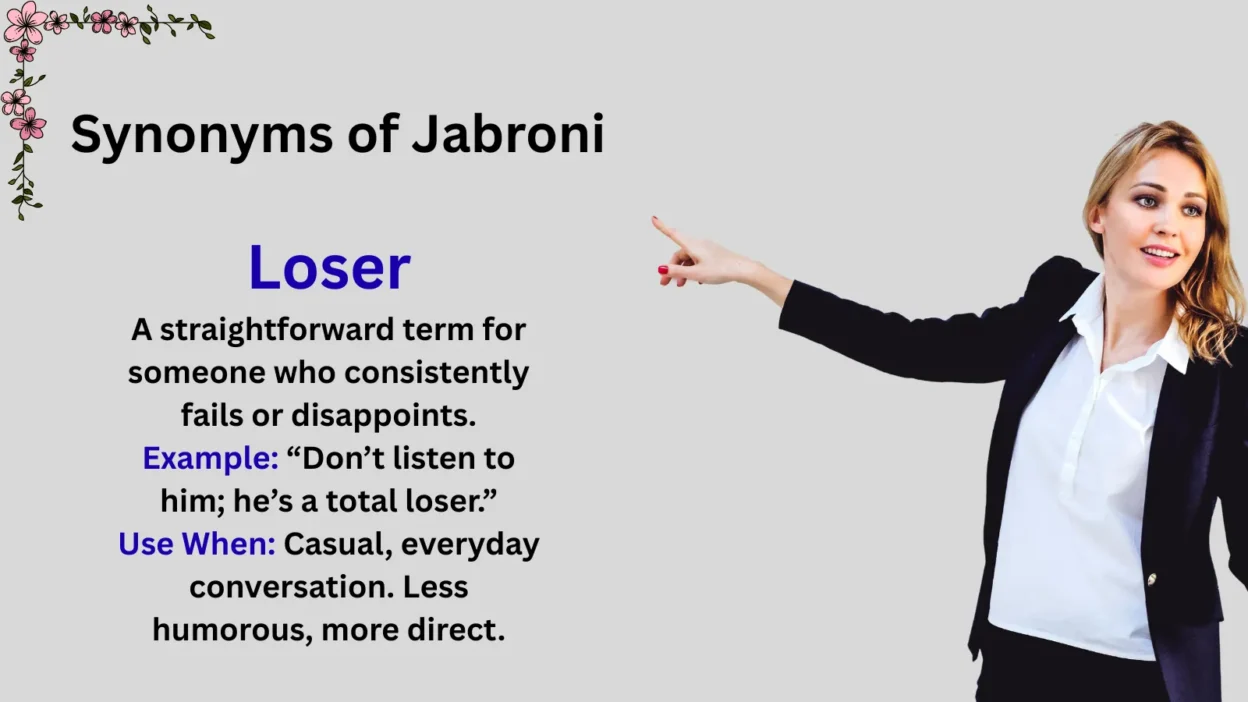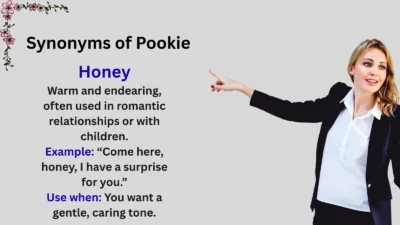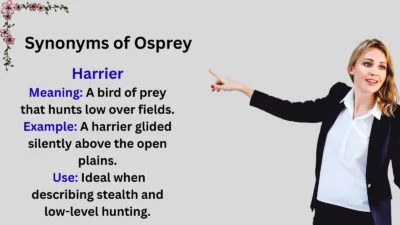Synonyms of Jabroni, such as loser, fool, wannabe, and underdog, capture the playful insult often used to describe someone who talks big but can’t back it up. For example, in wrestling or casual talk, a “jabroni” is the person who loses the match or tries to act tough without real skill.
If you’re writing about slang, pop culture, or sports talk, using the right synonym for jabroni helps you match the attitude and humor behind the word.
In this guide, we’ll explore several ways to say “jabroni” and when each fits best. Each synonym shows a slightly different tone—from friendly teasing to sharp mockery.
These synonyms of jabroni not only make your language more expressive but also deepen your understanding of how playful insults work in slang.
What Does Jabroni Mean?
Jabroni is a slang term popularized by professional wrestling, particularly by Dwayne “The Rock” Johnson. It refers to someone who loses, brags too much, or acts confident without reason.
Depending on how it’s used, jabroni can describe:
- A loser or underperformer
- Someone who tries too hard to impress
- A person others don’t take seriously
- A playful insult used among friends
It’s not usually meant—it’s more about humor and swagger. Think of jabroni as the ultimate lighthearted put-down, mixing fun, attitude, and pop culture flair.
Synonyms & Related Words for Jabroni (And When to Use Them)
1. Loser
A straightforward term for someone who consistently fails or disappoints.
Example: “Don’t listen to him; he’s a total loser.”
Use When: Casual, everyday conversation. Less humorous, more direct.
2. Fool
Someone who acts without thinking or makes silly mistakes.
Example: “Only a fool would jump into that situation unprepared.”
Use When: Light teasing or mild criticism.
3. Idiot
A stronger insult than “fool,” emphasizing lack of intelligence.
Example: “You left your keys in the fridge? What an idiotic move.”
Use When: Direct, somewhat harsh criticism. Not typically humorous.
4. Moron
Similar to idiot, but slightly more old-fashioned and blunt.
Example: “Stop arguing with him; he’s a complete moron.”
Use When: Frustrated tone, casual or informal speech.
5. Dingbat
A playful, quirky term for someone scatterbrained or silly.
Example: “She forgot her lunch again? What a dingbat!”
Use When: Lighthearted teasing or affectionate ribbing.
6. Nincompoop
Funny and old-fashioned; it indicates someone foolish or clumsy.
Example: “Only a nincompoop would wear socks with sandals.”
Use When: Humor and whimsy; not very harsh.
7. Dimwit
Focuses on low intelligence or poor judgment.
Example: “He’s a dimwit for thinking that plan would work.”
Use When: Mild insult in informal settings.
8. Simpleton
Suggests someone naive or lacking sophistication.
Example: “Don’t be a simpleton; check your facts first.”
Use When: Gentle criticism; can be slightly condescending.
9. Dork
A socially awkward or uncool person can be affectionate.
Example: “You’re such a dork for memorizing all those trivia facts.”
Use When: Playful teasing among friends.
10. Dope
Slang for a clueless or foolish person.
Example: “Only a dope would drive in reverse on that street.”
Use When: Informal and casual; modern slang tone.
11. Chump
Someone easily fooled or taken advantage of.
Example: “He believed their lies? What a chump.”
Use When: Casual, slightly mocking tone.
12. Goof
A silly or clumsy person; light and humorous.
Example: “He spilled coffee again—what a goof!”
Use When: Gentle teasing, not a serious insult.
13. Bonehead
Someone who makes obvious mistakes.
Example: “Calling the wrong meeting time? Bonehead move.”
Use When: Informal, humorous critique.
14. Knucklehead
A playful term for someone acting thoughtlessly.
Example: “Stop being a knucklehead and listen to the instructions.”
Use When: Affectionate teasing or joking frustration.
15. Airhead
Refers to someone forgetful or lacks focus.
Example: “She forgot her homework again; total airhead.”
Use When: Lighthearted, often feminine usage.
16. Clown
Someone who behaves ridiculously or is not taken seriously.
Example: “He tried to impress everyone but looked like a clown.”
Use When: Humorous or mocking tone.
17. Nitwit
Small-scale insult implying foolishness or lack of sense.
Example: “Don’t be a nitwit; double-check the address.”
Use When: Gentle, old-fashioned teasing.
18. Jerk
More aggressive than a jabroni; someone unpleasant or rude.
Example: “Ignore him; he’s just a jerk.”
Use When: Direct insult, less humorous, more confrontational.
19. Twit
British slang for a foolish person; light insult.
Example: “He left the oven on? What a twit!”
Use When: Casual, playful tone.
20. Sap
Someone is easily tricked or naive.
Example: “He bought that scam? Poor sap.”
Use When: Slightly pitying, mild insult.
21. Muppet
British slang: someone behaving foolishly.
Example: “You forgot the tickets? You muppet!”
Use When: Playful, humorous context.
22. Oaf
A clumsy, unintelligent person.
Example: “He tripped over the sidewalk—total oaf.”
Use When: Humorous physical critique, casual.
23. Rube
Someone unsophisticated, naive, or from a rural area.
Example: “The city customs confused him; such a rube.”
Use When: Slightly condescending, descriptive rather than harsh.
24. Lamebrain
A silly or unintelligent person.
Example: “He tried to fix the sink and flooded the kitchen; lamebrain.”
Use When: Casual, humorous teasing.
25. Halfwit
Similar to dimwit or fool; implies limited intelligence.
Example: “He forgot the deadline again; total halfwit.”
Use When: Informal, slightly stronger insult than “fool.”
26. Schmuck
Yiddish origin; mildly insulting term for a foolish or contemptible person.
Example: “Don’t be a schmuck—read the fine print first.”
Use When: Casual, informal, slightly humorous.
27. Blockhead
Someone stubborn or slow-witted.
Example: “Ignoring advice? What a blockhead.”
Use When: Old-fashioned, humorous criticism.
28. Weirdo
Someone unconventional or strange, sometimes socially awkward.
Example: “He dances in the supermarket aisle—total weirdo.”
Use When: Playful, quirky observation rather than harsh insult.
29. Peasant
Historically literal, now figuratively, someone uncultured or low-status.
Example: “He couldn’t handle the etiquette; real peasant behavior.”
Use When: Mocking sophistication or manners, tongue-in-cheek.
30. Fumbler
Someone prone to mistakes or clumsiness.
Example: “Dropping the files again, what a fumbler.”
Use When: Light teasing, highlights incompetence humorously.
How to Choose the Right Synonym
Choosing the right synonym depends on tone, context, and audience:
- Humorous vs. Harsh: Words like dingbat, goof, or muppet are playful, while idiot, moron, and jerk are stronger.
- Cultural Context: Some slang, like schmuck or muppet, works better regionally or in informal settings.
- Formality: Words like simpleton, rube, or halfwit may appear in more literary or old-fashioned contexts.
- Emotional Impact: Light teasing uses airhead, dork, or clown; serious insult uses loser, jerk, or moron.
By considering your audience and emotional tone, you can convey insult, humor, or playful ribbing effectively.
Conclusion
Understanding the synonyms of jabroni helps you express playful mockery, lighthearted insults, or casual banter more creatively. Whether you use words like loser, wannabe, chump, or rookie, each adds a unique tone—ranging from humorous to teasing.
These alternatives can fit sports talk, friendly arguments, or pop culture references. By selecting the right synonym, you can maintain a sharp, expressive, and engaging language.
The world of jabroni slang reminds us that even insults can carry personality, humor, and style.



